POSTCARD
A glint of sunset on a waterfront
largely devoid of ships—a blue expanse
of water and the same old famous skyline—
a scene that is and isn’t what I want
to see tonight, or to experience
with seagulls, dogs, and joggers. Past the shoreline
of stunted plants and patchy grass, the water,
the closest thing to everywhere there is,
moves sluggishly away, its complement
of floating trash as well. And what’s the matter
stays obvious, the linkage clear as this
impassibility, impediment
of miles of waves and storms sequestering
me from you, this land from everything.
BLASPHEMY
i.m. Thomas Bilney, John Tewkesbery, Richard Bayfield, Thomas Dusgate, James Bainham, and Thomas Hitton
The law is something in the eye,
perhaps a direction you can’t look,
a destination when you die,
a way that human flesh can cook
for different laws, a different breach
than the mere lusts of greater men.
A man’s imaginings can reach
Utopia; but still, a pen
is just a pen; the sword will trump
as scissors do to paper, slash
the bastard church into a rump—
but then there’s rock. We hear the crash
against the metal. Paper’s next,
then back to scissors. Hold your breath.
Stay inside. Don’t mail your checks.
There’s no clear trump in this but death.
Sometimes, the only way to fight
is at a remove, a proxy bout
with heavy bets each way. Despite
precautions, someone’s still knocked out.
One can read it as one will—
mere violence, a core belief,
a martyrdom, or overkill,
a cause for sorrow or relief.
Too late, of course—six corpses made
the arch-blasphemer’s sacrifice,
the greatest law of all betrayed
as smoke rose up to paradise.
INCREMENTS
Damnation rarely bursts out as a gasp
of recognition as it sees itself
smirk in the mirror, all sneer and shitbag grin
collapsing in a rising, cackling laugh.
We all know that we're really scum at heart—
but evil's something else... an avocation,
something that takes work, as much as good.
We mostly feel too lazy for the big sins.
We stick to our adulteries, our binges,
small water-cooler power-plays at work,
a much-deleted browser history,
self-reassurances that if we know
we're being bad, it isn't quite so bad.
The dark and mutinous eyes that rise to meet
our pudgy, haggard faces only see
the increments and folds of slow collapse,
the cruel, sad forms that ultimately mean
nothing worse or better than ourselves.
Quincy R. Lehr was born in Oklahoma City, Oklahoma on November 14, 1975 and grew up in the nearby university town of Norman. After attending public schools in his home town, he attended the University of Texas at Austin before going on to graduate work in history at Columbia University, resulting in a Ph.D. in 2006. The poetry developed along the way, says Lehr, "because it was cheaper than buying beer."
Lehr's poetry and criticism have appeared in numerous journals in the U.S., UK, Canada, Australia, Ireland, and the Czech Republic, He is the author of several poetry collections, most recently Shadows and Gifts (2013) and Heimat (2014).
In addition to his own writing, Lehr is active as an editor. He co-founded Modern Metrics Press (now an imprint of EXOT Books) with R. Nemo Hill in 2006, and he has served as the associate editor of The Raintown Review, an up-and-coming print journal, since 2008.
